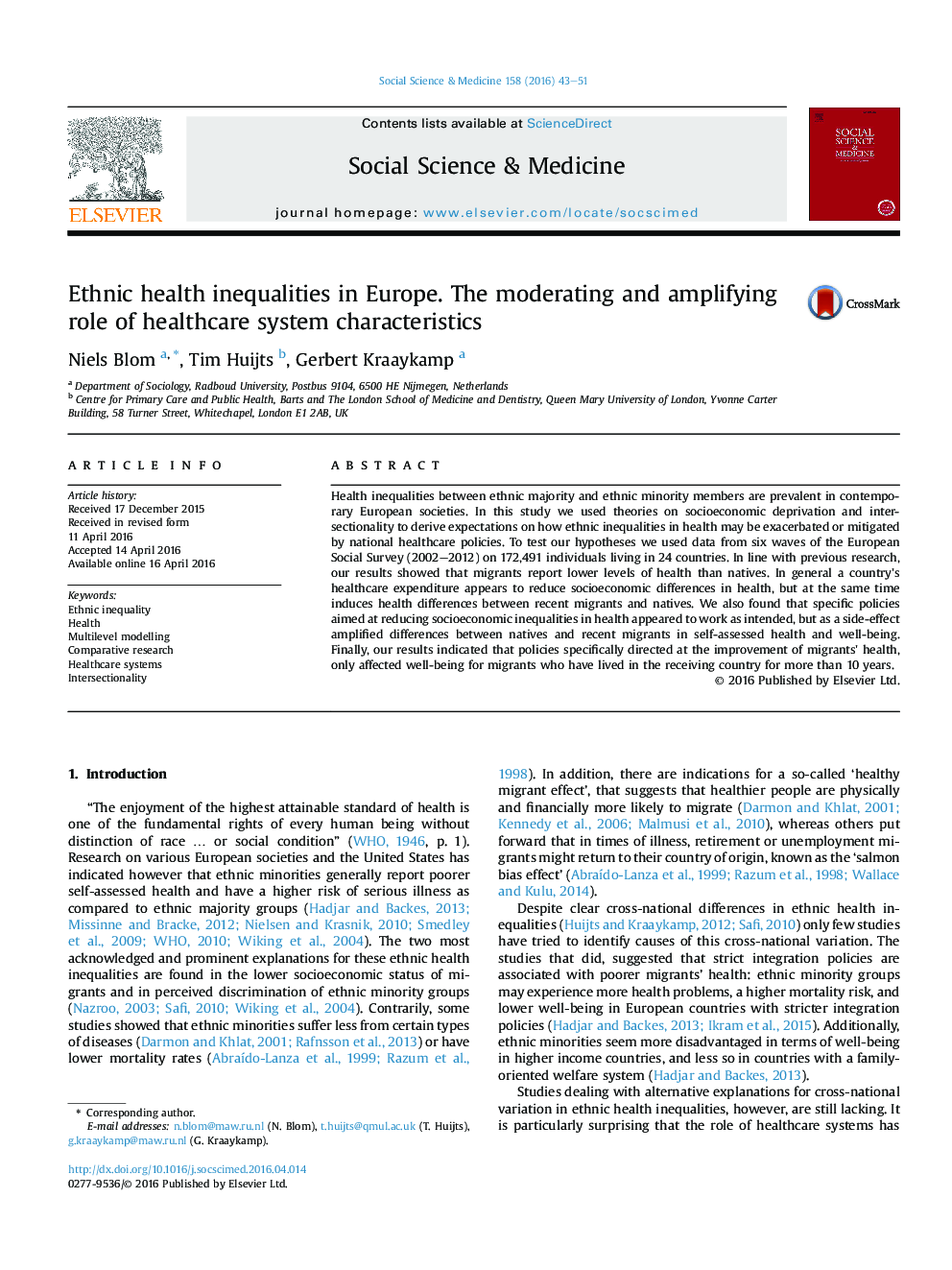| Article ID | Journal | Published Year | Pages | File Type |
|---|---|---|---|---|
| 7330079 | Social Science & Medicine | 2016 | 9 Pages |
Abstract
Health inequalities between ethnic majority and ethnic minority members are prevalent in contemporary European societies. In this study we used theories on socioeconomic deprivation and intersectionality to derive expectations on how ethnic inequalities in health may be exacerbated or mitigated by national healthcare policies. To test our hypotheses we used data from six waves of the European Social Survey (2002-2012) on 172,491 individuals living in 24 countries. In line with previous research, our results showed that migrants report lower levels of health than natives. In general a country's healthcare expenditure appears to reduce socioeconomic differences in health, but at the same time induces health differences between recent migrants and natives. We also found that specific policies aimed at reducing socioeconomic inequalities in health appeared to work as intended, but as a side-effect amplified differences between natives and recent migrants in self-assessed health and well-being. Finally, our results indicated that policies specifically directed at the improvement of migrants' health, only affected well-being for migrants who have lived in the receiving country for more than 10 years.
Keywords
Related Topics
Health Sciences
Medicine and Dentistry
Public Health and Health Policy
Authors
Niels Blom, Tim Huijts, Gerbert Kraaykamp,
